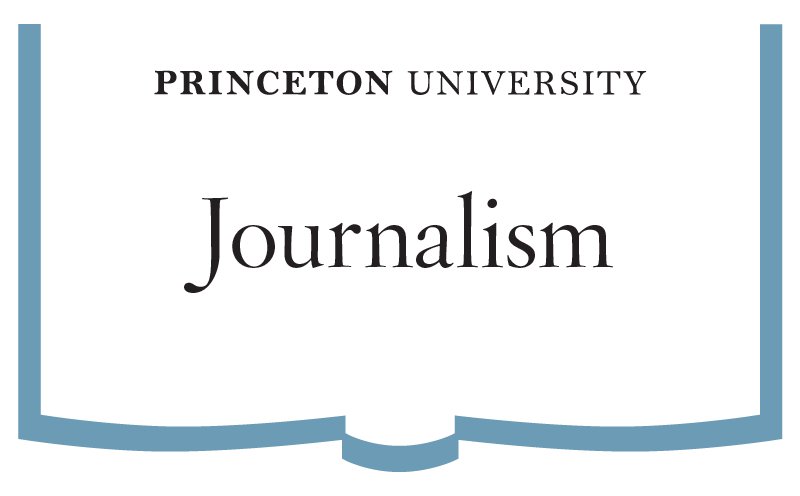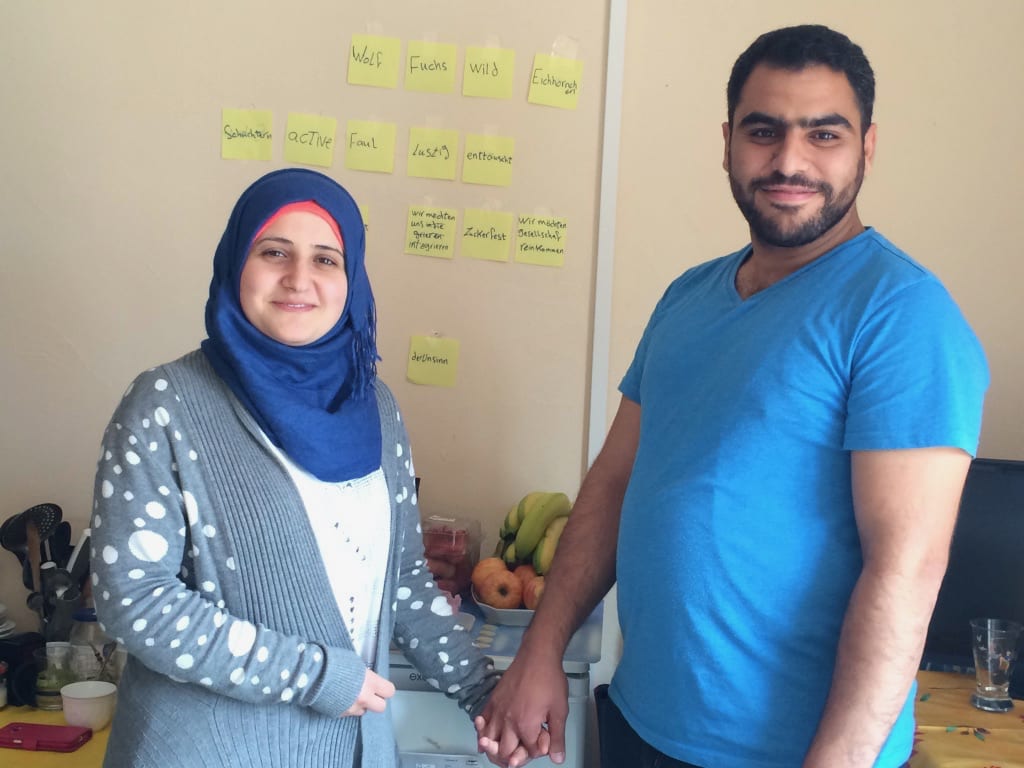By Lisa Kraege
What does the refugee crisis sound like? Joanna Kakissis, Athens-based international correspondent for NPR and visiting Ferris Professor of Journalism in the Humanities Council, spoke to a large Zoom audience on April 1 about reporting on refugees in Europe. The refugee stories most people encounter in the news are almost always about the trauma of migration, she said: the dramatic — and sometimes deadly — sea or border crossings, the conditions in migrant camps, the protests and riots. But Kakissis wants listeners to hear what happens after these moments, when a refugee begins a new life in a new country. She presented excerpts from some of her recent work before turning to audience questions and discussion, in which she was joined by faculty discussant Karen Emmerich, associate professor of Comparative Literature and director of the Program in Translation and Intercultural Communication.
On radio programs like NPR’s, sound plays a particularly important role in shaping the story of migration. After playing part of a story she had recorded aboard an Italian rescue boat, Kakissis pointed out that the sounds in the clip reflect what we expect to hear when we think of migration: waves splashing against the hull of a sinking refugee boat, a frenzy of shouts in multiple languages, the heartbreaking wail of a mother whose child has not survived the rescue attempt. “As dramatic as this story is, and as important as this story is, this is the story we hear over and over again,” Kakissis said. “We don’t hear what happens after.”
Kakissis’ interest in covering stories beyond these traumatic moments was inspired by her own immigration journey. Her family moved to North Dakota from Greece when she was four. Integration was difficult, and Kakissis remembered her parents’ attempts to retain their connection to Greece even as they settled into America. “What my parents would do is sing,” she said. “To them it was like they were willing themselves into a place that felt comfortable.” As a nod to that experience, she played a series of clips she had collected of refugees singing in a myriad of languages. Song can give voice to the intense sense of longing that many feel in their adopted countries, and is one example of what the story of integration can sound like.
Emmerich moderated a rich discussion. Many of the audience questions centered on policy, and Kakissis spoke to increasingly conservative views of immigration among moderates and far-right parties all over Europe. These far-right parties, like the Golden Dawn party in Greece, have become more and more dominant in shaping European immigration policies.
Kakissis attributes part of this rise in populist nationalist sentiment to the media’s portrayal of migration. “People may feel displaced or overwhelmed when they see images or hear stories that only highlight the flow of people into the country,” she said. She regards stories of integration, like that of a middle-aged Syrian man navigating a changing job market or a young married couple settling into Germany, as one way to foreground the relatability of refugee experiences and encourage empathy with people in similar situations. “When we focus on the dramatic journey or the protests, we’re almost dehumanizing the story,” she said. “We’re not focusing on the human aspect of the story.”
Sound plays a large role in fostering this human aspect in refugee stories, and radio has the potential to capture what still images or televised news cannot, Kakissis said. “What I appreciate is hearing the intimacy of people’s voices. You can feel it so much more.”
This lunchtime talk was co-sponsored by the Seeger Center for Hellenic Studies, with the support of The Paul S. Sarbanes ’54 Fund for Hellenism and Public Service.













